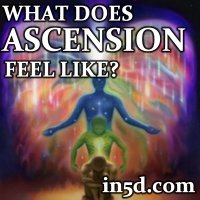 |
| "Later, n00bs. LOL" |
Do we consider the account to be factually accurate or is it at least partially allegory? Other than the first part of Acts, the accounts are rather sparse with the Transfiguration accounts (for instance) having substantively more details.
What is the take-away message here? Is it that God comes down, does all He can (including giving His own life) and after fulfilling every jewish prophesy about the messiah and having taught them everything he can, God is going home so he can be some form of Divine negotiator with himself?
 |
| "Becoming" |
One has a unique deity which becomes mortal long enough to teach, preach, clear his bucket-list of prophesy and have at least the verisimilitude of death, only to come back transformed and then return to himself. The other has a man who is slowly transcending his own nature through the work of the Divine within us all, showing others how to do the same till he shows that even death is not a barrier. In the end, he ascends to a higher state of being, leaving his teachings behind.
I'm not saying that either path is right. Perhaps they both are right...or both wrong and there's another way yet. What I wonder about is which provides us a better understanding of the Divine and how to become closer to Her.
The second because it most closely mirrors a core truth of material life--evolution to higher states of being.
ReplyDeleteI think it is a combination. I agree with colkoch that it involves a process; colkoch refers to it as being an "evolution" whereas Eastern Orthodoxy would use the rather more powerful expression of "divinization".
ReplyDeleteYet, the second path excludes a Christian teaching of crucial importance: the Incarnation in which the Divine One demonstrates profound humility by laying aside divinity and embracing the messy flesh of humanity. It is a reality with which Christians continue to struggle.
One who loves and is in love desires to be with the beloved. Thus, I believe that even if humanity had not sinned, God would have come amongst us for no other reason than out of love, which is surely the very essence of the Creator.